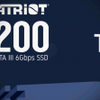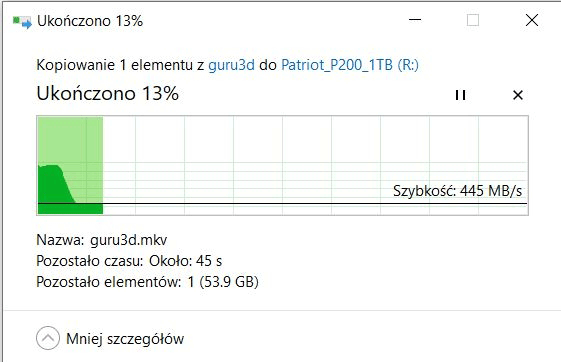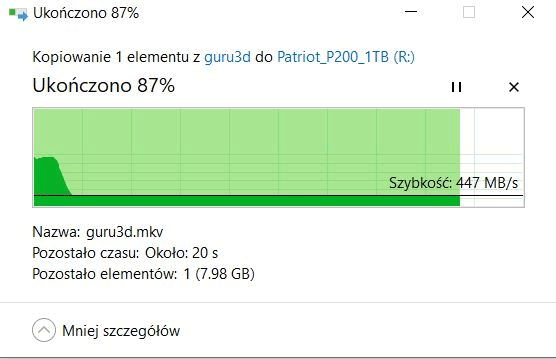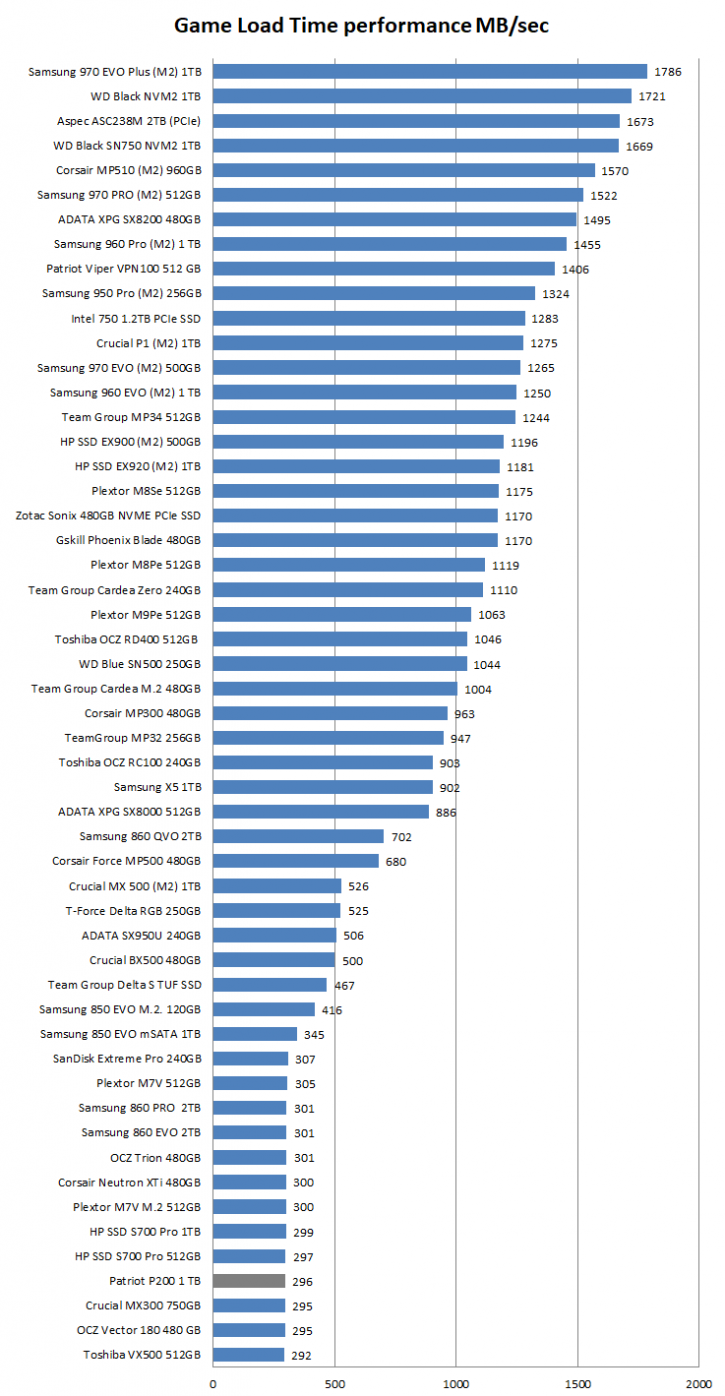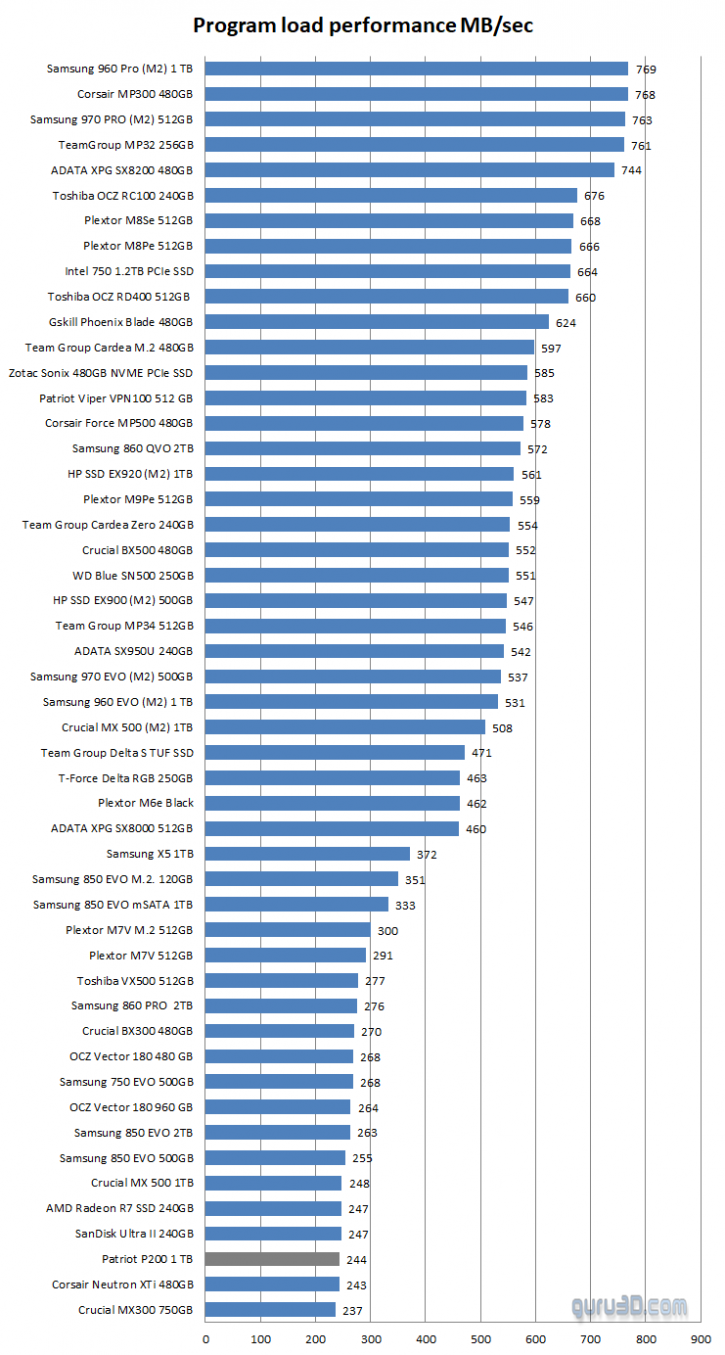SSD Performance File Copy Tests
SSD Performance
In this round of benchmarks, we start off with our real-world file copy tests. Currently, certain controllers benefit from compressed files, yet others don't. Certain storage units hate small files, whereas others work well with them. So it only makes sense to do some manual tests on that. Any storage unit's nightmare, whether it is an HDD or SSD, is storing really small files as fast as possible.
File Copy
This is the most basic and simple test anyone can perform. We drop a compressed ~ 62 GB MKV file onto the SSD.
The SSD managed to write the data staying at about ~445 GB/s, no major fluctuations visible.
Game Load Time Performance
The audience that we cater to here at Guru3D.com is made up primarily of gamers. For that reason, I'd like to start offering real-world game performance tests. A lot of things happen in the system when a game is loading. The CPU is hard at work, your SSD loads up executables, binaries, shaders, textures, and what not, while the system memory processes it all. Thing is, with a fast SSD you can really decrease the overall loading time of your games and levels.
Our measurements are based on game sequence load time, which we translate into the number of MB/s that the storage unit can manage and load. Higher is better in this chart.
Performance Application Load Time
Here, we emulate the loading of complex software like Photoshop, Internet Explorer, Word, PowerPoint, etc. So we’re checking how many applications / dlls / hooks / etc. this storage unit can cope with simultaneously, in MB/s. High-IOPS storage units will score better here, as they can manage more files in a shorter time.
